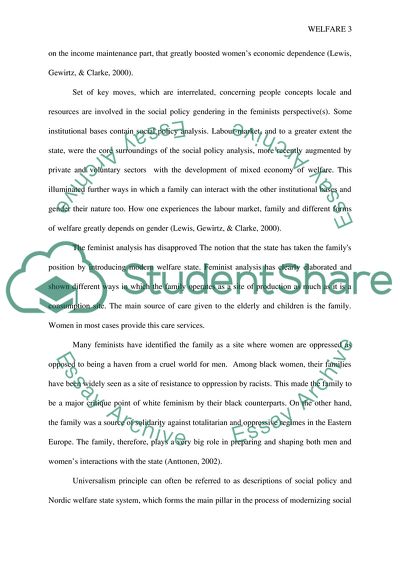Cite this document
(Welfare State in the UK as a Good Thing for Women Essay Example | Topics and Well Written Essays - 3250 words, n.d.)
Welfare State in the UK as a Good Thing for Women Essay Example | Topics and Well Written Essays - 3250 words. https://studentshare.org/sociology/1855257-the-development-of-the-welfare-state-in-the-uk-was-indisputably-a-good-thing-for-women-discuss
Welfare State in the UK as a Good Thing for Women Essay Example | Topics and Well Written Essays - 3250 words. https://studentshare.org/sociology/1855257-the-development-of-the-welfare-state-in-the-uk-was-indisputably-a-good-thing-for-women-discuss
(Welfare State in the UK As a Good Thing for Women Essay Example | Topics and Well Written Essays - 3250 Words)
Welfare State in the UK As a Good Thing for Women Essay Example | Topics and Well Written Essays - 3250 Words. https://studentshare.org/sociology/1855257-the-development-of-the-welfare-state-in-the-uk-was-indisputably-a-good-thing-for-women-discuss.
Welfare State in the UK As a Good Thing for Women Essay Example | Topics and Well Written Essays - 3250 Words. https://studentshare.org/sociology/1855257-the-development-of-the-welfare-state-in-the-uk-was-indisputably-a-good-thing-for-women-discuss.
“Welfare State in the UK As a Good Thing for Women Essay Example | Topics and Well Written Essays - 3250 Words”. https://studentshare.org/sociology/1855257-the-development-of-the-welfare-state-in-the-uk-was-indisputably-a-good-thing-for-women-discuss.


